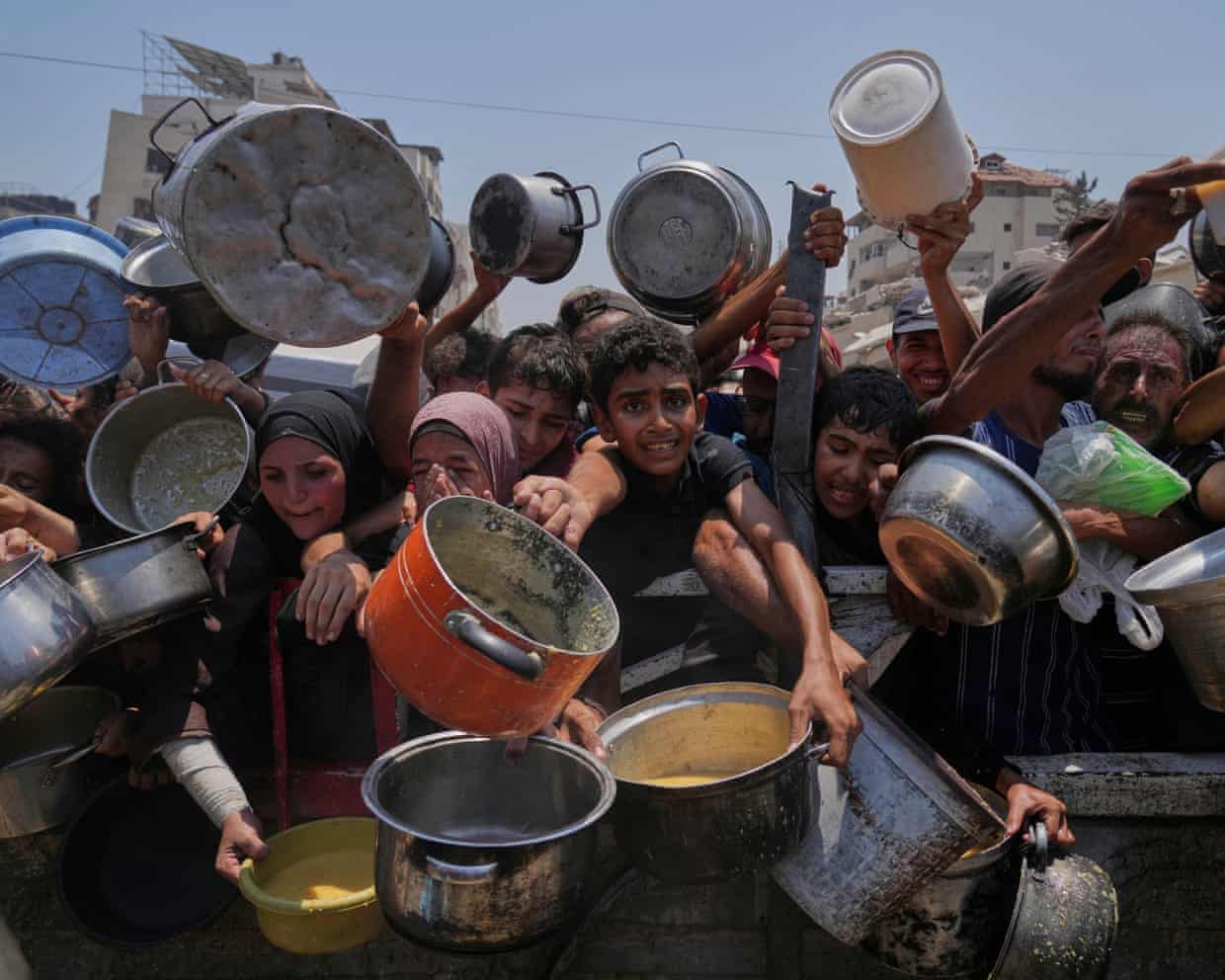At least 57 people have died in Gaza within a 24-hour period, with many casualties resulting from Israeli airstrikes and gunfire as civilians sought aid. The violence coincides with the breakdown of ceasefire negotiations, which have faltered amid an escalating humanitarian crisis marked by widespread starvation. Reports indicate that the situation has become dire, with individuals shot while waiting for aid trucks near the Zikim crossing into Israel.
Humanitarian organizations are raising alarms about the catastrophic conditions in Gaza. The Palestinian news agency reported that at least 124 individuals have died from starvation, including 84 children. Disturbingly, an infant succumbed to malnutrition on Saturday, marking the third baby to die from hunger within just one day. Israeli airstrikes continued across the region, including an incident that killed four people in an apartment building in Gaza City.
The breakdown of ceasefire talks came after the United States and Israel withdrew their negotiating teams from Doha on Thursday. U.S. President Donald Trump attributed the failure to Hamas, asserting that the group was not interested in reaching a deal. In response, Israeli Prime Minister Benjamin Netanyahu indicated he was contemplating “alternative options” to ceasefire discussions, though he did not specify what those options entailed.
Hamas officials have denied responsibility for the stalled negotiations, characterizing the U.S. and Israeli withdrawal as a tactical maneuver. Senior Hamas official Taher al-Nunu stated, “Trump’s remarks are particularly surprising, especially as they come at a time when progress had been made on some of the negotiation files.” As both parties remain at an impasse, key issues such as the positioning of Israeli troops during a ceasefire and the exchange of Palestinian prisoners for Israeli hostages remain unresolved.
The humanitarian situation in Gaza continues to deteriorate, with over 90,000 women and children in urgent need of treatment for malnutrition. The World Food Programme has warned that one in three individuals in Gaza is going for days without food. Rania al-Sharahi, a 44-year-old mother of six who is pregnant, described her struggle, stating that she has lost 22 kg while attempting to feed her children. “As for bread, we don’t even talk about it any more. It has become a luxury,” al-Sharahi lamented.
Despite the growing humanitarian crisis, Israel has downplayed the severity, suggesting that a coordinated media campaign is damaging its reputation. The Israeli government claims that aid is prepared for distribution but attributes delays to the United Nations, which has faced significant challenges in delivering assistance due to Israeli restrictions. The UN has stated that most requests to distribute aid are routinely denied and that delays are commonplace.
Since lifting its total blockade in May, Israel has stated that it has allowed 4,500 aid trucks into Gaza, averaging about 70 trucks per day. However, this figure is significantly lower than the pre-war average of 500 trucks daily, which the UN deems inadequate given the scale of need. International pressure is mounting on Israel as distressing images of malnourished infants circulate globally, leading to discussions about resuming airdrops of aid.
Jordan has announced plans to conduct airdrops primarily of food and milk formula, a decision welcomed by UK Prime Minister Keir Starmer, who is working to facilitate British aid into Gaza. In contrast, Philippe Lazzarini, head of the United Nations Relief and Works Agency for Palestine Refugees in the Near East (UNRWA), criticized airdrops as “inefficient” and a mere distraction from the deepening starvation crisis.
Meanwhile, France has indicated it will recognize a Palestinian state at the upcoming UN General Assembly in September, a move seen as a statement against Israeli actions in Gaza. In contrast, Italian Prime Minister Giorgia Meloni has expressed opposition to such recognition, arguing it would be “counterproductive.”
Since the commencement of Israel’s military operations in response to the Hamas-led attack on October 7, 2023, nearly 60,000 people have lost their lives in Gaza. The international community continues to grapple with the unfolding humanitarian crisis as diplomatic efforts to broker a ceasefire remain stalled.






































































